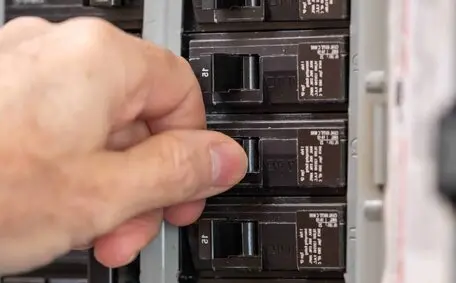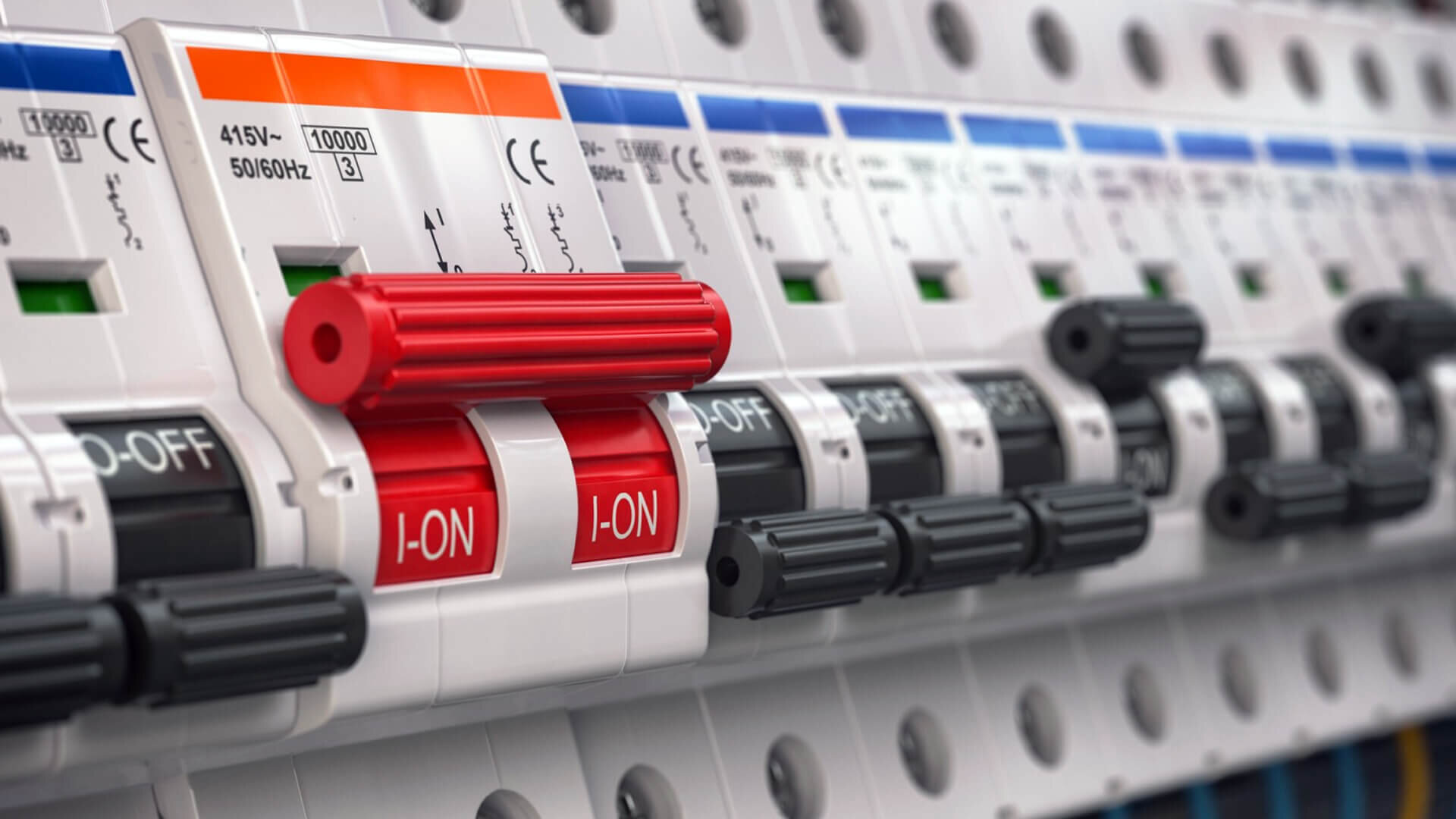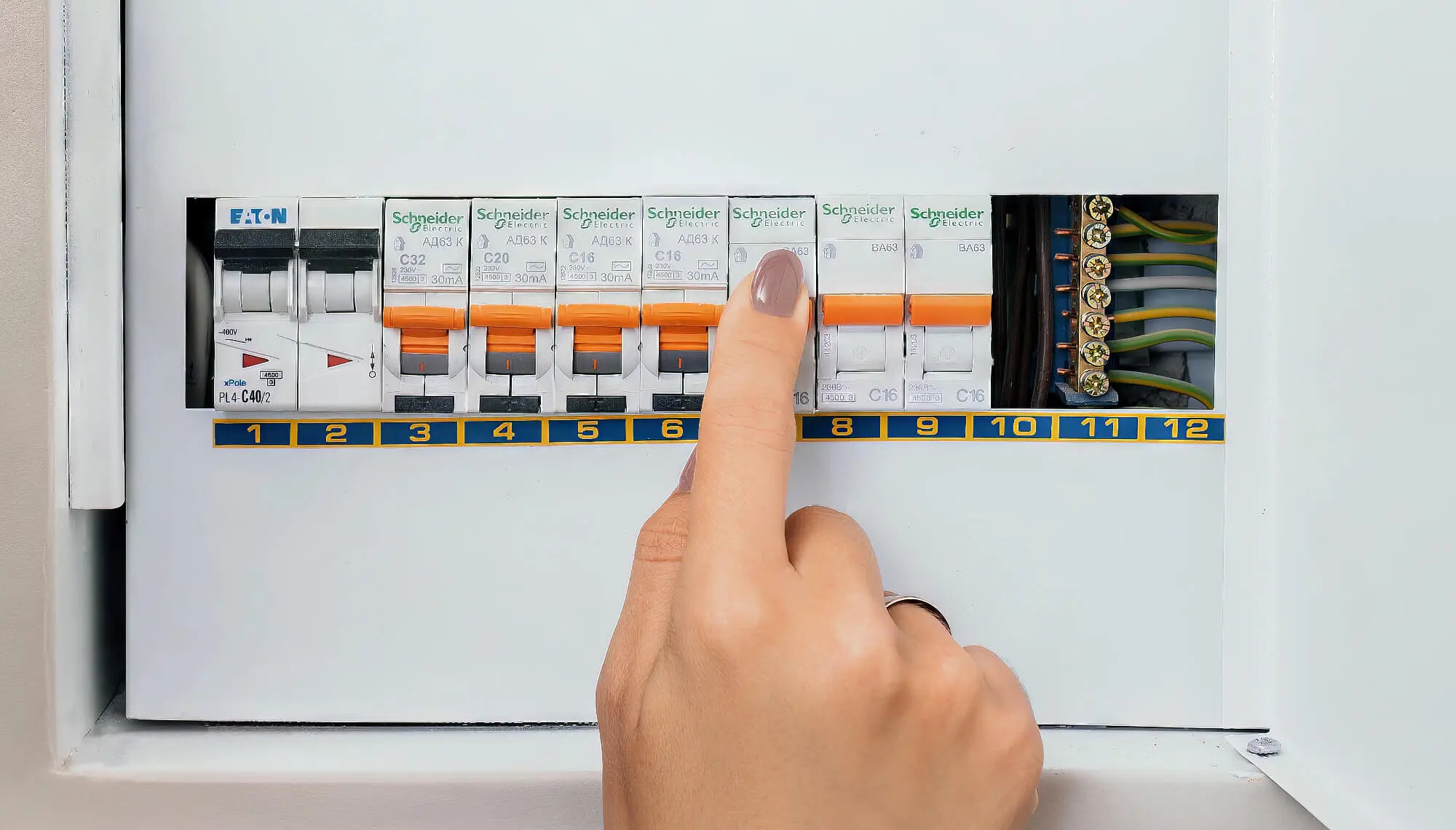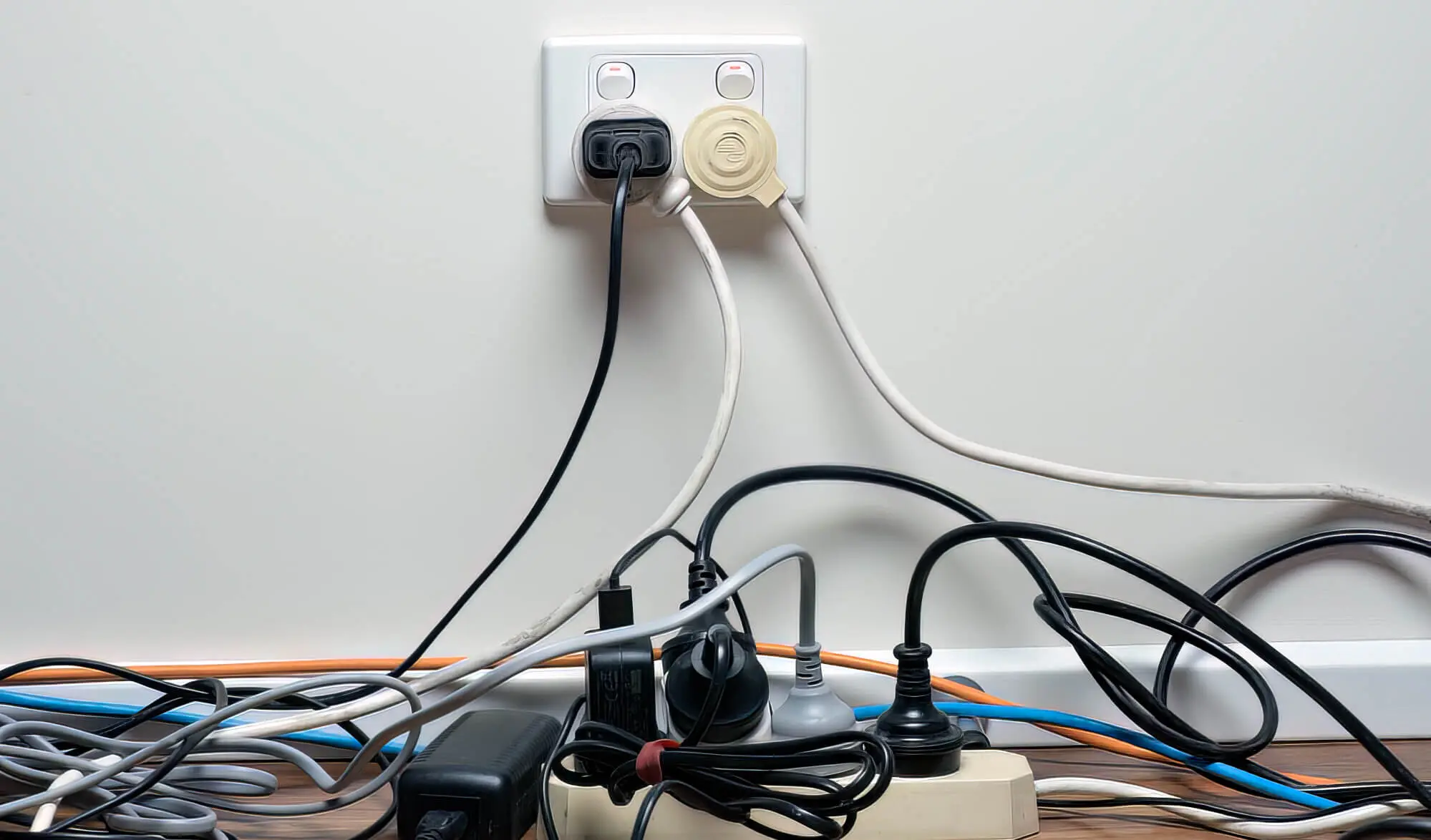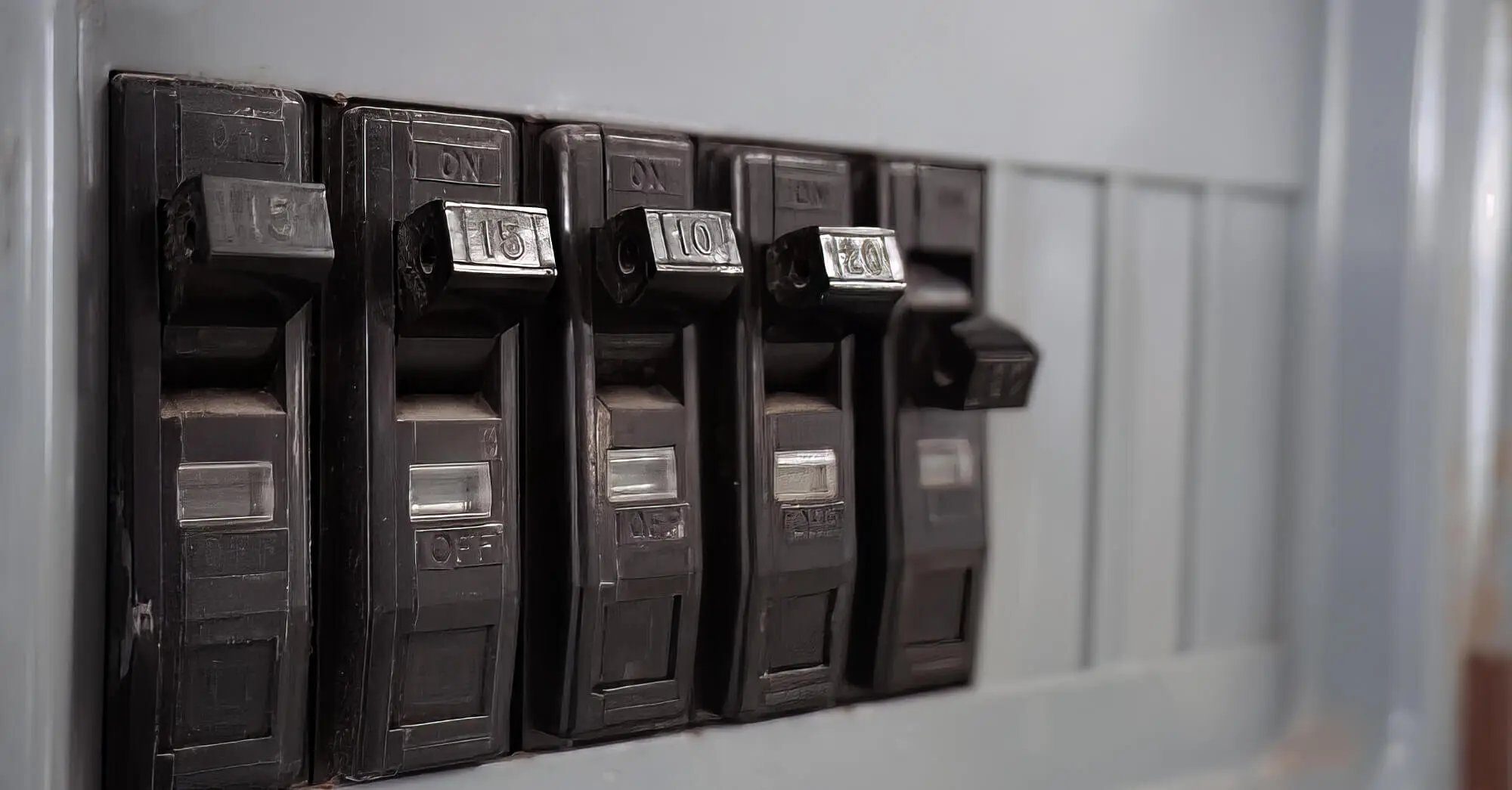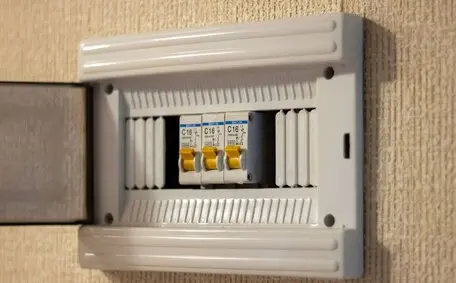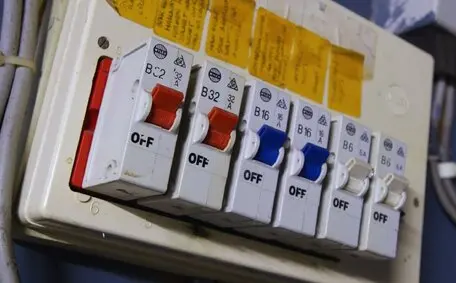Imagine reading the newspaper when suddenly the power goes out due to a tripped breaker in your electrical system. Isn’t that frustrating?
Initially, this might not appear to be a major electrical issue. However, ignoring it isn’t wise, as it could lead to serious damage over time. Simply resetting the circuit breaker won’t solve the problem permanently since it can reoccur.
![Whats Tripping Circuit Breaker Whats Tripping Circuit Breaker]()
As such, ascertaining the reasons for circuit overload, ground faults, or short circuits can help you prevent problems in the future. On that note, we have put together this guide to illustrate the common reasons that your circuit breaker keeps tripping so that you can prevent it from happening.
What Causes Circuit Overload?
One of the main reasons a circuit breaker can trip quite often is when the electrical circuit is subjected to an overload. As the name suggests, this problem usually occurs when the circuit receives excess power from the main electrical source, which causes it to overload. Corroded or damaged wires can also cause the circuit to draw out more amperage than it can normally handle.
![Pointing At Circuit Breaker Switch Pointing Circuit Breaker Switch]()
Another reason for overloading might be plugging too many appliances into a single power outlet. This puts a lot of stress on the outlet as it attempts to pull more power than it can manage. However, you can prevent the circuit breaker from tripping by following these tips:
- Unplug unnecessary appliances before using any electrical appliance, as it prevents the outlet from drawing excess power.
- If you have reset the breaker, we recommend plugging one appliance at a time to prevent power overload.
- You can also install a dedicated circuit for appliances that need extra amperage.
- A separate circuit should be employed for large appliances to distribute the power supply evenly.
What Are The Causes Of A Short Circuit?
A short circuit usually occurs when an active or hot wire comes in contact with a neutral wire, causing a large amount of current to overflow. This excessive current flow causes the circuit to overload and the breaker to trip. If not taken care of, it can also cause popping sounds, sparks, and smoke.
Here are a few other reasons that can cause a short circuit:
- Faulty electrical fixtures, plugs, appliances and switches
- Loose connection in the main circuit
- Damage caused by pests and rodents chewing the wire
- Slipped wire
![Power Point With Messy Cables Power Point Messy Cables]()
Short circuits are especially risky as they can generate high temperatures when current runs through the wire. If not handled carefully, this could threaten your home and family by potentially sparking electrical fires.
We highly recommend contacting a qualified electrician when you notice a short circuit problem in your house. They can repair and rewire any damaged or faulty wiring.
What Causes A Ground Fault?
A ground fault usually occurs when an active or hot wire comes in contact with a ground wire, which triggers excess current to pass through the circuit breaker. This causes circuit breakers to trip as they try to prevent the circuit from overloading from the extra amperage.
A ground wire is designed to act as a grounding agent whenever excess current hits the electrical system during a thunderstorm. However, damaged or defective equipment and appliances can trigger a ground fault.
It can pose great danger whenever live electrical wires and parts are exposed. If you are not careful around them, such an event could cause fatal accidents and severe electrical shock. Apart from this, you can get a ground fault shock if you touch the hot side of the wire with wet hands.
As such, bathrooms, outdoor spaces, and kitchens are prone to ground faults since the floors remain damp. You can avoid this problem by ensuring the house complies with the local safety electrical code and installing ground-fault circuit interrupters (GFCI) to prevent fires and accidents.
How To Figure Out If A Circuit Breaker Is Faulty?
Circuit breakers are crucial elements of your home’s electrical system, safeguarding appliances from damage. However, a defective circuit breaker can send misleading signals, leading to frequent mishaps. Sometimes it might trip when everything seems fine.
![Circuit Breaker Diagnostics Circuit Breaker Diagnostics]()
Keeping this in mind, here are a few signs to help you determine if the circuit breaker is faulty or damaged:
- Signs of damage on the breaker, such as scorch marks and burn marks
- A burning smell coming from the electrical box
- Frequent instances of tripping the breaker, despite all parameters appearing normal
- The electrical panel hasn’t been serviced or maintained for more than ten years
- A circuit breaker is hot whenever you touch it.
Circuit Breakers Trips: What You Need to Know
This guide helps you understand why your circuit breaker might trip. Before we wrap up, here are some handy tips to keep your home safe.
Firstly, you should never try to repair an electrical appliance or a cord without experience or qualification. And wear all the appropriate safety gear while touching an electrical appliance.
When working in damp areas, make sure your electrical cords are well-insulated; water can easily lead to a short circuit. Additionally, replacing any defective cables with new ones can significantly extend your electrical system’s life.
Lastly, we highly recommend plugging one appliance at a time into a power outlet to prevent it from overloading. If the power outlet isn’t compatible with the appliance, you should refrain from using it.
Nevertheless, we strongly advise that you call an electrician, who is qualified, to thoroughly inspect the system if the circuit breaker continues to cause trouble. If you need an electrician in Sydney, look no further than our highly experienced team at Bright Force Electrical. We offer 24/7 electrical repairs across Sydney, so don’t hesitate to call us today.
That said, stay safe, and see you next time!
Tripping Circuit Breaker FAQs
Why does my circuit breaker keep tripping?
A tripped circuit breaker usually means there is too much electrical load on that particular circuit. Too many electrical appliances running on the same circuit can cause a circuit overload, which causes the circuit breaker to trip to protect your wiring from an electrical fire.
What causes a circuit breaker tripping?
Common causes of a circuit breaker tripping include:
- Circuit overloads from having too many electrical appliances on the same circuit
- A short circuit due to loose or corroded wires making improper connections
- Faulty wiring inside an appliance drawing too much electrical current
- Power surges
How do I reset a tripped circuit breaker?
First, unplug all the electrical appliances on that circuit. Locate the breaker box and flip the tripped circuit breaker from the “off” position fully to the “on” position. This will reset it. If it trips again right away, unplug more appliances before resetting.
How can I prevent tripping circuit breakers?
To prevent nuisance circuit breaker trips:
- Avoid overloading circuits by spreading appliances over more electrical circuits
- Inspect wiring and fix any loose or corroded wires
- Upgrade faulty wiring that can’t handle the electrical load
- Have an electrician check for any faulty wiring issues
- Consider upgrading the electrical panel if more circuits are needed
- Use surge protectors to protect electronics and electrical devices
- Replace aging appliances that are overloading circuits
